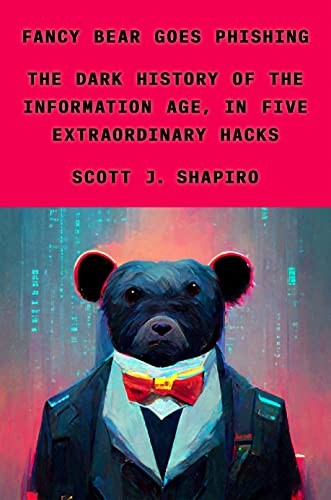J. Trent Adams hat Fancy Bear Goes Phishing von Scott J. Shapiro besprochen
Faulty Description of Technology Leads to Mistaken Conclusions
2 Sterne
When going into "Fancy Bear Goes Phishing" by Scott Shapiro, I was interested in his unique take on "hacking." I was hoping to learn something from his perspective as a law & philosophy professor at Yale. Unfortunately, he stumbles when trying to make his points leading me to disregard many of his conclusions.
I was fine with his glossing over the more technical details... as a professional in cybersecurity (creator of a handful of Internet security technologies), I can't get hung up when a writer for popular audiences skips the complicated bits... but what bugged me was when he got technical details flatly wrong. These lead to mistaken conclusions in his reasoning about the behavior and psychology related to various attacks he discussed.
In the end, I'd suggest skipping this book. Experts will likely be annoyed with the mistakes, while non-experts might come away with an inaccurate understanding about how …
When going into "Fancy Bear Goes Phishing" by Scott Shapiro, I was interested in his unique take on "hacking." I was hoping to learn something from his perspective as a law & philosophy professor at Yale. Unfortunately, he stumbles when trying to make his points leading me to disregard many of his conclusions.
I was fine with his glossing over the more technical details... as a professional in cybersecurity (creator of a handful of Internet security technologies), I can't get hung up when a writer for popular audiences skips the complicated bits... but what bugged me was when he got technical details flatly wrong. These lead to mistaken conclusions in his reasoning about the behavior and psychology related to various attacks he discussed.
In the end, I'd suggest skipping this book. Experts will likely be annoyed with the mistakes, while non-experts might come away with an inaccurate understanding about how malicious attacks (and associated defenses) actually work.
I give Shapiro a star for at least shining a light on cybersecurity issues that need attention. A second star is for his obvious passion for the subject and being an entertaining author. Too bad he fell off the boat beyond that.

